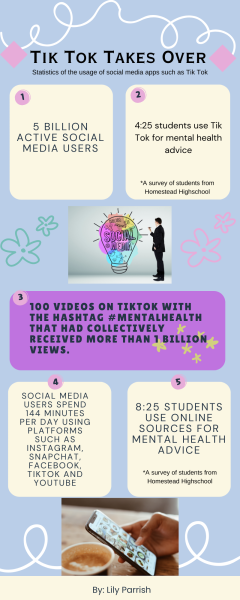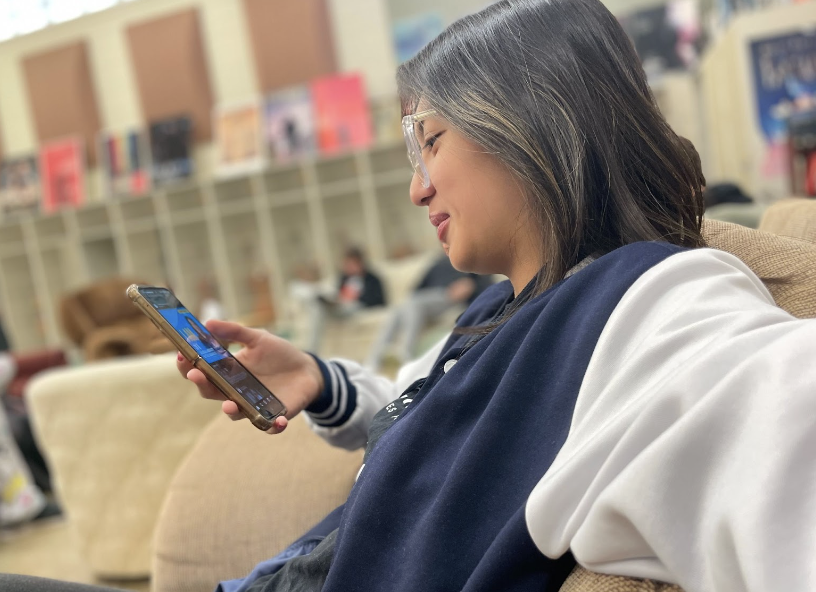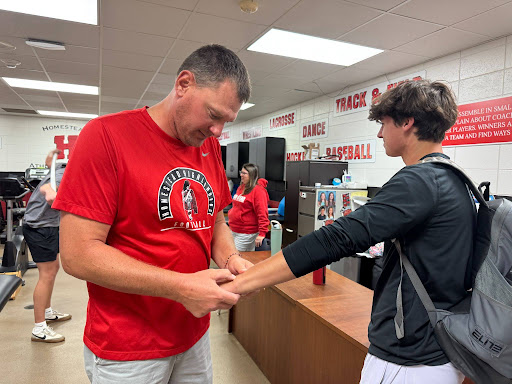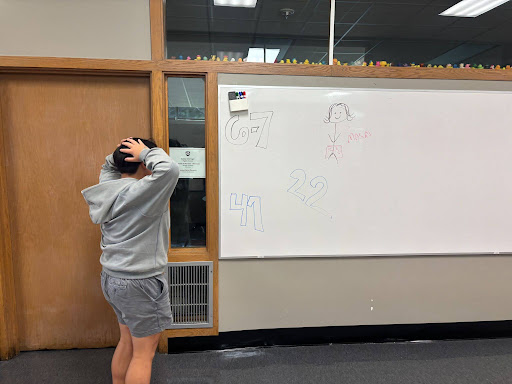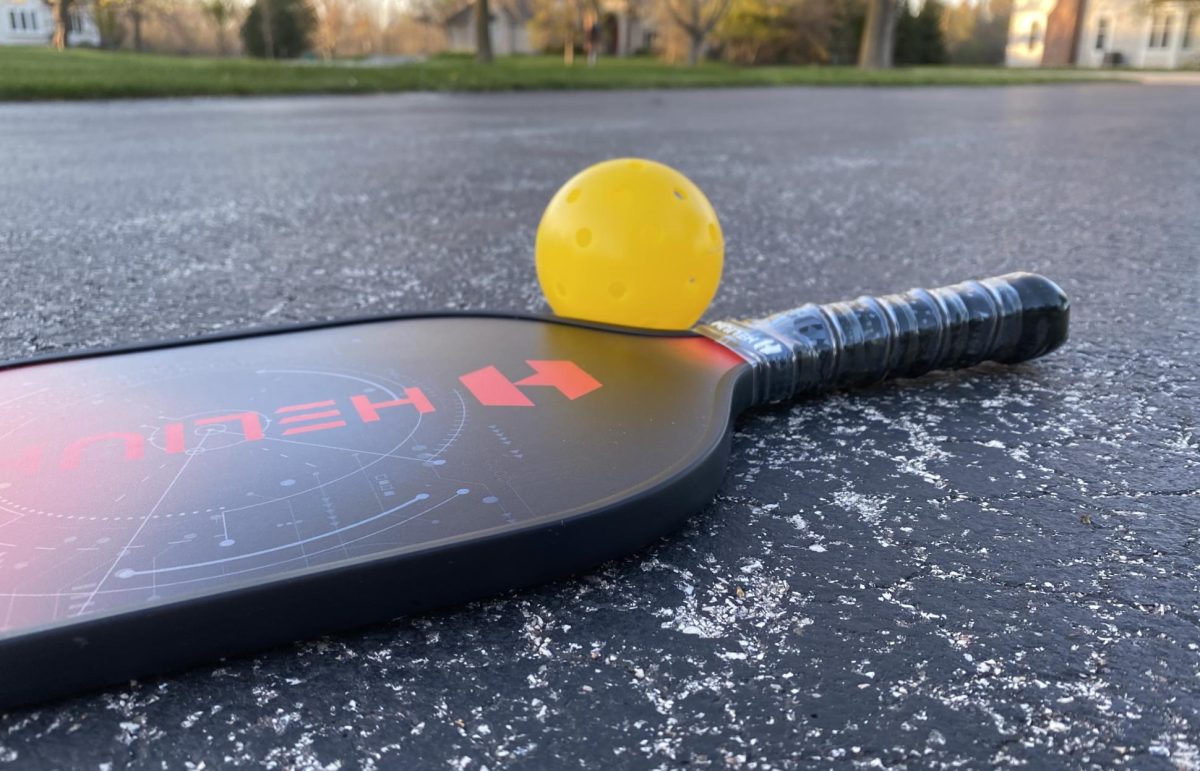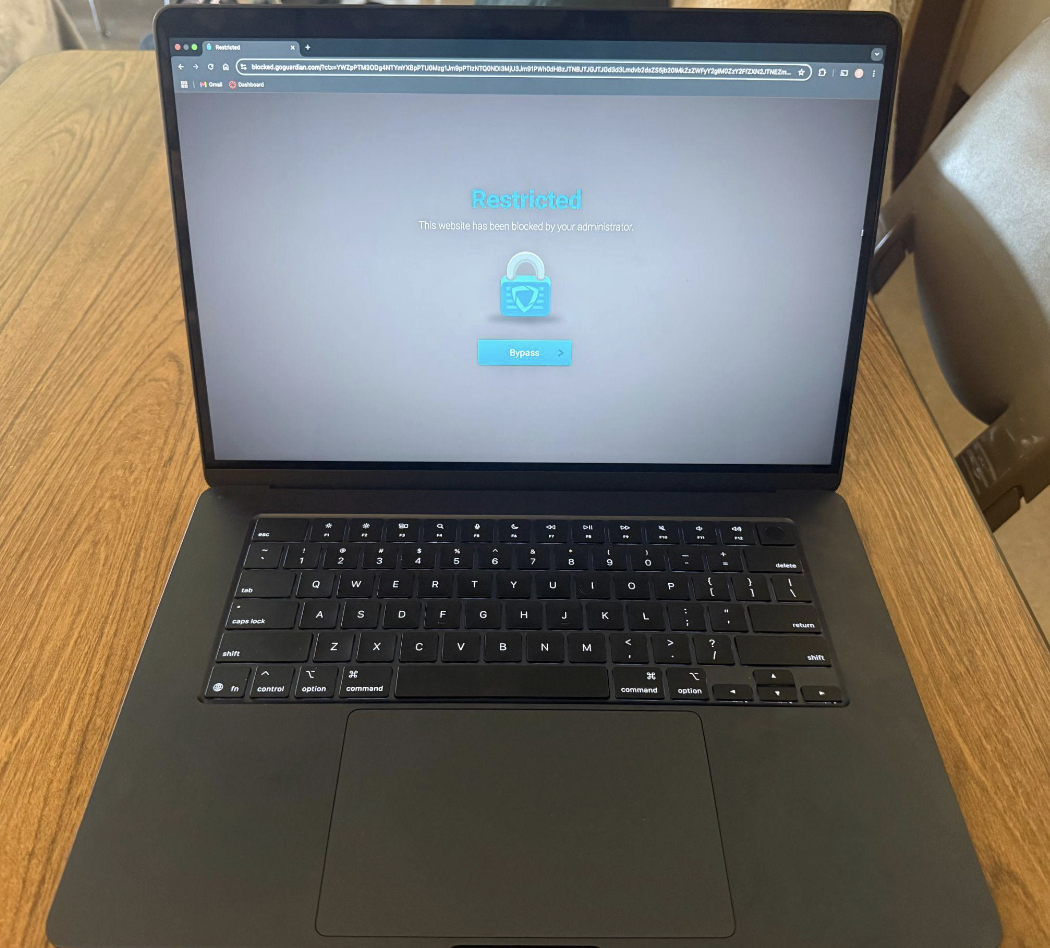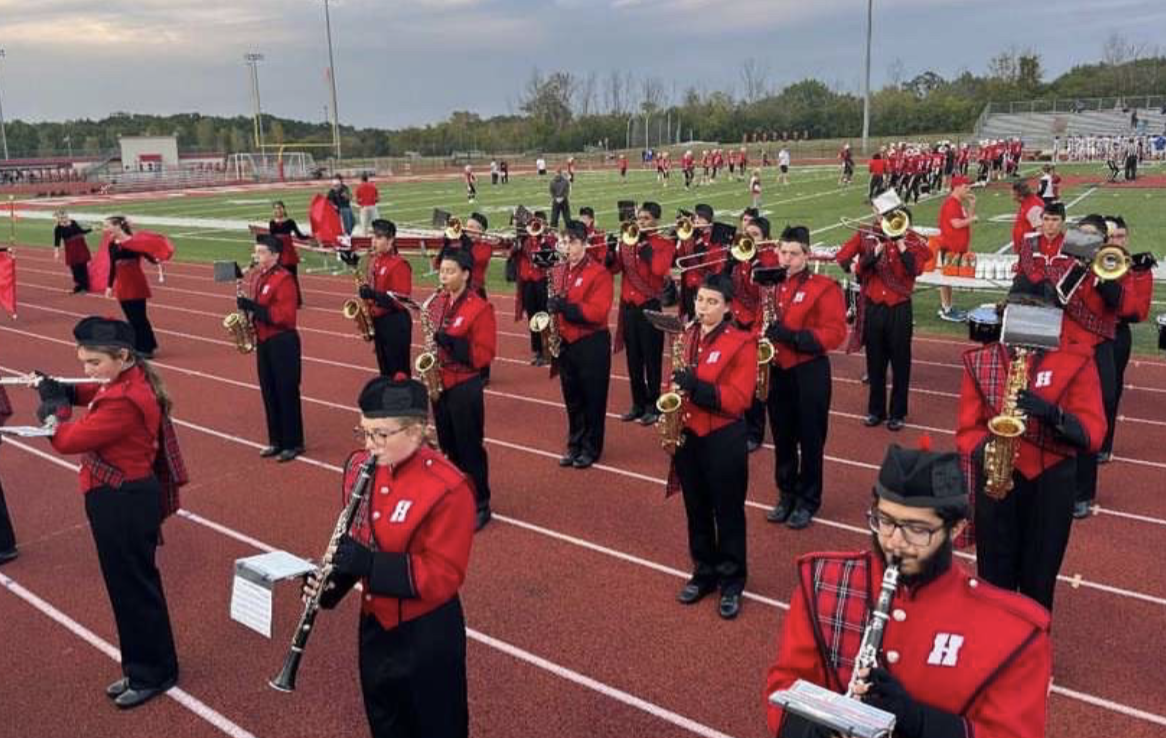There are more than five billion active social media users worldwide who spend hours each day relentlessly scrolling through videos and images.
A large percentage of Tik Tok users are teenagers who can be easily influenced by what they see on social media.
Mel Franklin, freshman, discussed the consequences of spending too much time on social media. She spends an average of three hours on TikTok every day.
“It makes me compare myself to others and it makes me feel down about myself. Pretty much all social media does that,” Franklin said.
Mary Beth Sesselmann, school psychologist, explained the cause of such feelings.
“The teenage brain in particular is obviously still developing and then a little bit more vulnerable,” Sesslemann said.
Micah Adams, psychology teacher, had similar opinions about the vulnerability of the teenage brain.
Adams said, “social media has an especially powerful hold on people, but especially the developing brains of teenagers. This is due to the fact that social media features stimuli such as video, pictures, and other attention-grabbing items” that are meant to stimulate the release of the neurotransmitter dopamine which gives you the feelings of pleasure, satisfaction, and motivation.
Most recently, the vulnerability of the teenage brain has caused many TikTok users, specifically teenagers, to be influenced to use the app in order to diagnose mental health disorders.
Christina Caron, the author of the New York Times article “Teens Turn to TikTok in Search of a Mental Health Diagnosis” said, “a number of mental health providers say that they are seeing an uptick in teenagers and young adults who are diagnosing themselves with mental illnesses — including rare disorders — after learning more about the conditions online.
A study of 25 students at Homestead showed that four out of 25 students use TikTok to research advice on health or medical questions and 12 out of 25 students use online sources to find answers.
In addition, Christina Caron writes about another study in her article.
“A study published in March analyzed 100 videos on TikTok with the hashtag #mentalhealth that had collectively received more than 1 billion views. It showed that adolescents appear to be turning to TikTok as a source of support, and the advice there is largely driven by users’ conversations,” Caron said.
Teenagers frequently lean towards social media for help instead of a trusted adult or a professional because they tend to feel safer and less vulnerable exploring their struggles online.
“A person is not as vulnerable looking at something privately on their phone as they are talking openly with someone,” Sesselmann said.
Sophie Beispiel, sophomore, offered another perspective as to what causes this trend.
“Older generations have stigmatized mental health, which has prevented people our age from talking to them since we feel like they don’t understand us. That’s why our generation tries to connect with people our age on a very popular app for our generation,” Beispiel said.
Many health specialists believe that using apps such as TikTok is not the best way to get help.
Sesselmann said, “If they are experiencing challenges with their mental health, they need to reach out to their families, a trusted friend, a trusted adult, someone who can support them with guiding and evaluating what they might need. Social media can be used for maybe some sort of education, but also understanding that not everything you read is correct. I would not call Tik Tok a credible source for mental health.”
